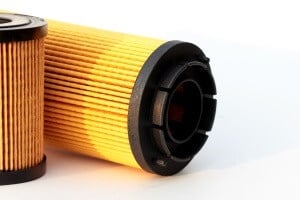Diesel Filtration: How Effective?
Diesel fuel filtration is still somewhat of a black box to many diesel users. They know it’s important but the details of it escape them. That’s not...

Fuel filtration is the practice of using filters to remove particulates from fuel (or water if you’re using a coalescing filter). Proper filtration and the effective removal of contaminants are vital to the health of every engine that runs on fuel.
And it’s not just vital for the health of engines. Diesel fuel filtration can also be a vital step in preserving the health of diesel fuel in storage tanks, according to an earlier recommendation by the EPA from its July 2016 field study on diesel fuel storage tank corrosion. Six key recommendations came out of the study. Some were common-sense (monitor your tanks for water regularly, treat your stored fuel with biocide and liquid corrosion inhibitor). But the EPA made another specific recommendation that surprised some people. They recommended that all incoming fuel be filtered for water and sediment content BEFORE it’s added to a storage tank. The secondary recommendation, for those who insist they really aren’t in a position to do that, is to add the fuel to the tank, circulate it, and then filter all the fuel in that tank for water and sediment.
Why did the EPA make such a recommendation? There are at least a couple of reasons that come to mind. Part of it comes from one of the findings of their study – that excessive content of water and sediment in fuel samples had the highest correlation with the presence of severe corrosion in the corresponding storage tank.
But beyond that, filtering the fuel (either before or after addition) removes the precursors to fuel instability, which in turn extends the storage life of the fuel. The longer you can keep those kinds of things out of your diesel fuel, all else being equal, the longer your fuel will last in storage.
Filtering fuel also keeps excessive amount of sludge and particulates from building up in your storage tank over time. You might not think this is an issue, but you may want to reconsider.
Say you’re a fleet operator with a diesel storage tank that goes through one fuel drop of 8,000 gallons per week. That fuel appears to be pretty clean, with a sediment content of only 10 mg/L. Doesn’t sound like very much. Over a year’s time, your storage tank would accumulate 11 pounds of sludge in its bottom, at the very least.
Expand that to a large situation, like a high volume fuel distribution terminal that could easily process 2 million gallons of fuel per tank. Assuming that fuel is in the same state, fast-forward one year and that storage tank would see more than five tons of sludge built up from just the normal sediment drop out of that fuel.
So it’s easy to see that diesel fuel filtration can be a more integral part of an overall stored fuel health solution than one might think.

Diesel fuel filtration is still somewhat of a black box to many diesel users. They know it’s important but the details of it escape them. That’s not...
The most reliable way to restore problem fuel is to address both sides of the instability process: the chemistry happening inside the fuel and the...
Today's advanced common rail diesel engines rely on their diesel fuel filtration system to make sure they can do their job to their peak performance....